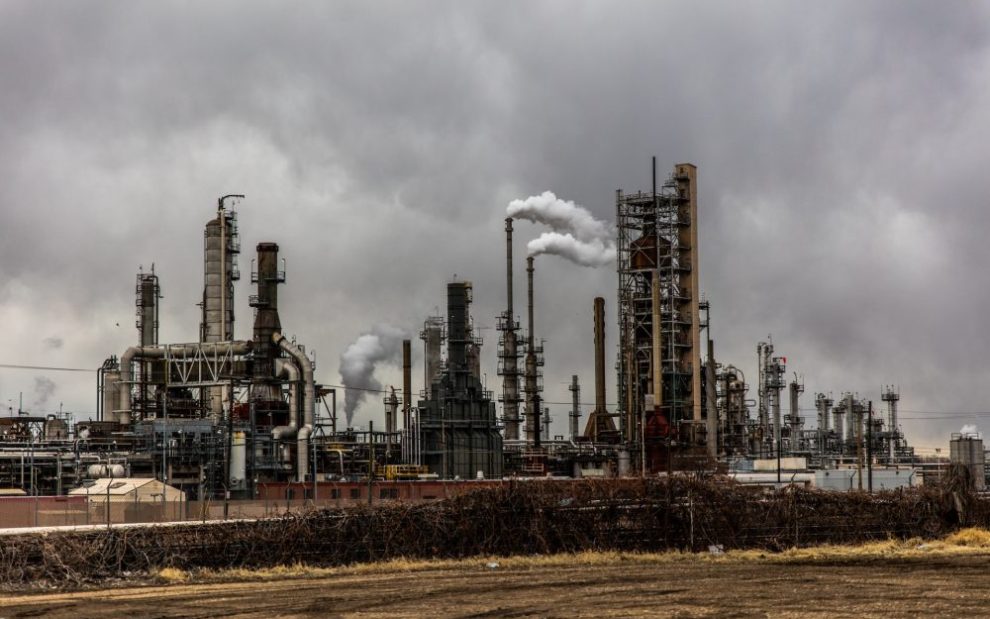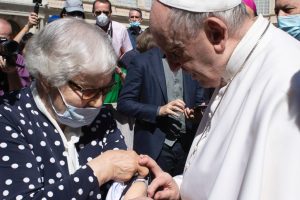Laudate Deum is an astonishing short letter that is part scolding, part warning, part strict urging, and one hundred percent pastoral concern. Clearly a prophetic text by genre, its overriding spiritual message is: Cast aside the destructive idolatry of power and profit that is poisoning our common home, turn to God, and care for God’s creation. Above all, protect the poor who are suffering the worst impacts from the climate crisis.
The document’s title, which calls the faithful to recenter their faith in God, offers the interpretive clue. Laudate Deum is a liturgical chant that translates as “praise God.” This prayer orients the reader to the context of worship and echoes the ancient biblical praise offered to God by all creatures throughout the psalms.
Pope Francis does not linger overlong on the theme of praise, however, but swiftly turns to a prophetic message of anger and denunciation of those who have taken climate denial to a new level. To me, this is the most significant new dimension of Laudate Deum. He recounts a truly dastardly litany of bad actors in astoundingly direct fashion, pointing to the corporate leaders, political elites, negotiators, power brokers, and others who should be enacting change at the upcoming United Nations climate conference in Dubai in November (known as the COP—Conference of the Parties to the United Nations Framework on Climate Change Convention). Francis criticizes their active efforts to delay solutions through their acts of ridicule, dismissal, deliberate misinformation, and suppressing awareness of the benefits of a clean energy economy.
However, Pope Francis makes clear that everyone bears responsibility. The pope implicates ordinary citizens in superdeveloped countries for maintaining a culture of waste. The situation is admittedly complex: Most of us have few or difficult choices about our energy sources, though we do have options regarding consumption, waste, and lifestyle. The pope points to higher U.S. emissions vis-à-vis China and developing nations. It is empirically true that per capita emissions are higher in the United States, and many Chinese emissions are generated to manufacture products that Americans buy. Still, the pope does not then scold U.S. citizens for their emissions—although certainly we should all reduce them. He urges everyone to work and shift global culture in a “broad change in the irresponsible lifestyle connected with the Western model.”
This is a pastoral and moral invitation to evolve toward a culture of solidarity and sustainability, of simplicity and spirituality. Not only is this our primordial vocation as keepers of the garden, but it is increasingly clear that none can flourish without clean air, clean water, and clean soil. Nor can global society thrive without the social stability based on sustainable livelihoods for all people, in their homelands, according to their traditional cultures.
General reflections on care for creation will no longer suffice given the urgency of achieving major progress at the upcoming conference. Hence the pope’s very specific discussion of emission targets and how to ensure them, which is a notable addition to Laudato Si’ (On Care for Our Common Home). There is a pointed insistence on metrics in Laudate Deum. The pope urges all involved at the COP to ensure it leads to the changes that are critically needed. Toward that end, he calls for strict metrics and monitoring in two important sets of “threes.” First, that the “forms of the energy transition . . . meet three conditions: that they be efficient, obligatory and readily monitored” and meet “three requirements: that [they] be drastic, intense and count on the commitment of all.”
The pope’s warning follows: “That is not what has happened so far, and only a process of this sort can enable international politics to recover its credibility, since only in this concrete manner will it be possible to reduce significantly carbon dioxide levels and to prevent even greater evils over time.”
As a pastor and guide, Pope Francis is inviting us to a collective examination of conscience. His focus on institutions and processes of power, the negotiations and commitment of nations, make it mandatory that we consider our relationship to social structures. How is God asking me to realize love, justice, and solidarity with all creation today and tomorrow, in my daily life, and in my energy choices? In my actions as a citizen?
Laudate Deum is already inspiring renewed actions and commitments, as Catholics around the world see and respond to the priority our church places on healing creation and caring for the poor. I anticipate a renewed emphasis on the “civic and political love” that Laudato Si’ highlights.
As a message for the whole church, Laudate Deum reminds Catholics that we care for creation in all aspects of our lives: in personal decisions, as citizens, as consumers, and as people responsible for shaping a new, more just, and more sustainable global culture.
The title Laudate Deum powerfully reminds believers that God is the Creator, and God’s creation is ever ongoing. The theological mystery of continuous creation affirms that God’s loving providence sustains all life, at all times. Although this prophetic text may seem to focus on the darkness, I encourage all to focus on Pope Francis’ call to faith. Herein is a flame of hope, a light against the darkness that he calls us all to protect as we care for our common home.
This article also appears in the January 2024 issue of U.S. Catholic (Vol. 89, No. 1, pages 10-12). Click here to subscribe to the magazine.
Image: Unsplash/Patrick Hendry














Add comment